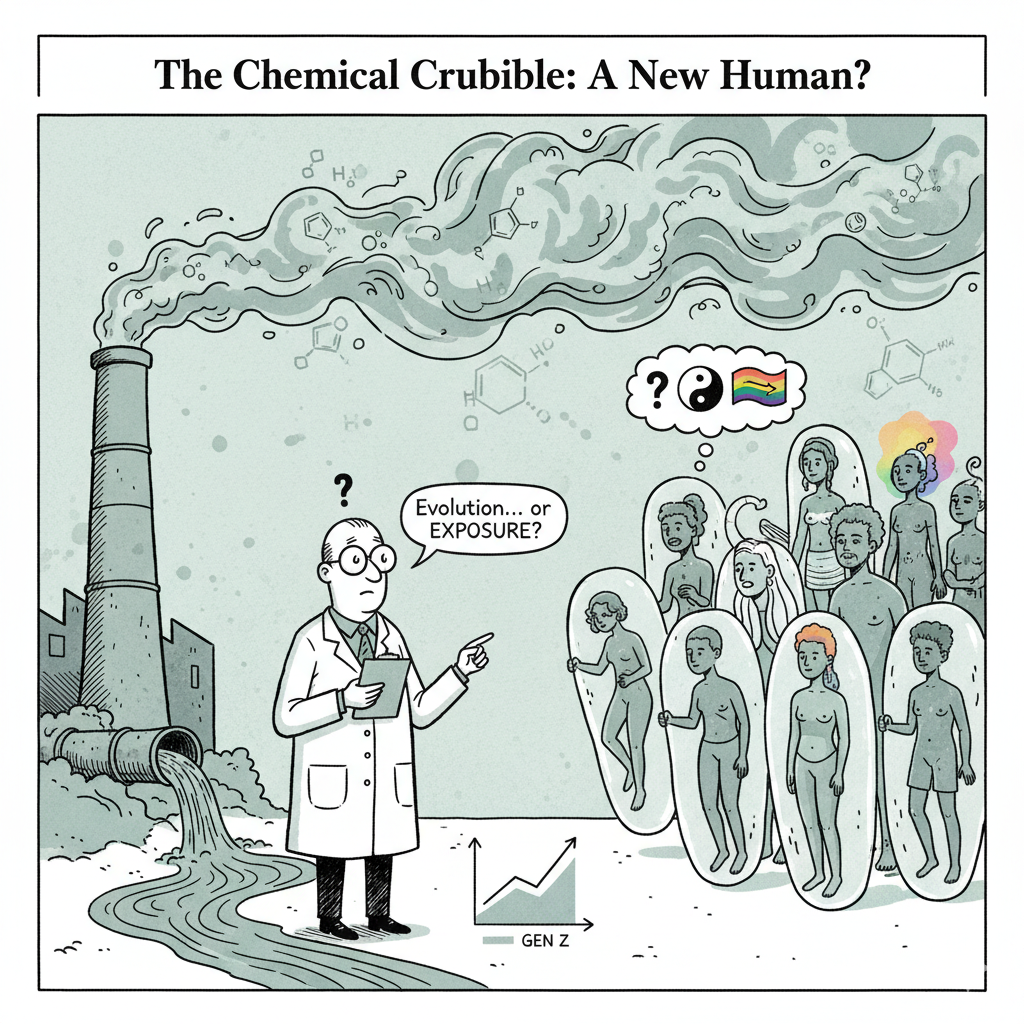Is Systemic Pollution Driving the Next Stage of Human Evolution?

TL;DR: The significant rise in non-heterosexual identities, particularly in younger generations, might be a biological consequence of pervasive, human-made chemicals altering our hormonal systems.
Let’s Dig In
Forget the noise and the culture wars for a second. The conversation about gender and sexual fluidity is often framed as a purely social phenomenon: people feel safer to ‘come out,’ so the numbers go up. That’s part of the story, but it’s probably not the whole book.
Here’s the inconvenient truth: the numbers showing a vast increase in non-heterosexual and non-cisgender identification—especially among Millennials and Gen Z—are statistically huge. In some surveys, over 20% of Gen Z identify as something other than heterosexual. This exponential jump is too big to be explained by just “social acceptance.”
Instead, let’s look at the plumbing. Our bodies are run by a super-sensitive chemical messenger network called the endocrine system (hormones). It’s the invisible boss that determines things like puberty, reproduction, and, critically, how our brains and bodies develop sex characteristics before we are born.
Now, imagine billions of tiny imposters are flooding that system. These are Endocrine-Disrupting Chemicals (EDCs). They are in everything: plastics, pesticides, industrial waste, and even our food supply. They act like keys that almost fit the hormone locks—sometimes turning the lock weakly, sometimes blocking the real key entirely. For decades, scientists have seen these chemicals demasculinize male amphibians and fish, and cause reproductive problems in animals. This isn’t speculation; it’s documented.
In humans, exposure to EDCs (especially in the womb) has been linked to issues like genital malformations and, critically, changes in the brain’s sexual “programming.” These chemicals don’t cause someone to be “bad” or “deviant”; they simply redirect a deeply biological process.
The essential point is that we’ve polluted our own evolutionary environment. The jump in gender and sexual diversity may not be a sudden failure of character, but a systemic, biological response to a chemically saturated world. It’s not a moral choice; it may be the latest chapter in human evolution being written by the toxic compounds we’ve released into the environment. We should welcome our friends and ask deeper, harder questions about the air, food, and water they (and we) are forced to live with.
Go Deeper: Never take at face value anything that claims to inform or educate. These are the receipts that come from reliable sources.
Endocrine Disruptors and Human Gender Identity: A Study on DES Impact of Endocrine-Disrupting Chemicals on Reproductive Systems Gallup: LGBTQ+ Identification in U.S. Rises to 9.3%—Huge Generational Shift NIH: Perinatal Exposure to Endocrine Disruptors and Behavioral Endpoints Wikipedia: Endocrine Disruptor